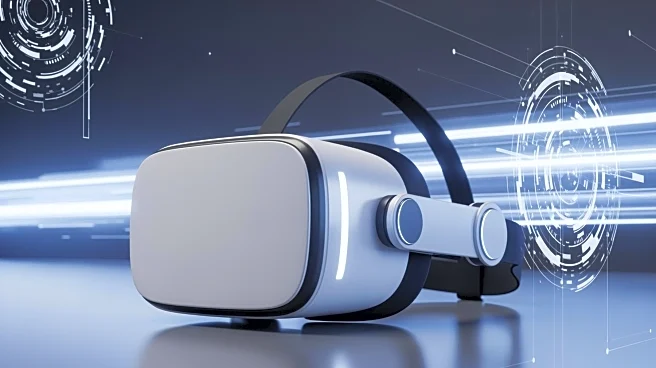What's Happening?
Duke Energy is leveraging immersive technologies, such as XR and VR, to improve workforce training and efficiency. The company's XR program, which includes 38 internal and external software development applications since 2018, has resulted in measurable
training savings and higher qualification rates. The initiative addresses challenges like funding, ROI measurement, and hardware gaps. Duke Energy's qualifications suites in the Natural Gas Business Unit and Commercial Renewables have shown significant cost savings and increased employee engagement. The company measures ROI through cost savings and value creation, despite difficulties in quantifying certain benefits like safety and employee satisfaction.
Why It's Important?
The adoption of immersive technologies by Duke Energy represents a significant shift in how energy companies approach workforce training and development. By using XR and VR, the company can provide more effective and engaging training experiences, leading to improved safety and operational efficiency. This approach not only reduces costs but also enhances employee satisfaction and retention. As the energy sector faces increasing demands for reliability and safety, the use of advanced technologies like XR could become a standard practice, offering a competitive advantage to early adopters.
What's Next?
Duke Energy plans to continue refining its XR initiatives, focusing on overcoming hardware challenges and integrating AI for enhanced training experiences. The company aims to expand its use of immersive technologies across more divisions, potentially setting a benchmark for the industry. As the technology evolves, Duke Energy will likely explore new applications and partnerships to further enhance its training programs. The success of these initiatives could influence other energy companies to adopt similar technologies, driving innovation and efficiency across the sector.

















